Gaston Gervais: he did it his way (second instalment)
After sharing with my father his discovery of a series of small lakes located not far from the Rouge River, Gaston and Charlie (my father) put together a group of friends and set about incorporating the territory on which the 16 lakes were located. Each lake was given the name of a member of the team: Lac Eddie, Lac Gaby, Lac Charlie, Lac Ludger, and so on.
The main camp was located on Lac Gervais, and the uncontested leader and boss of the territory was Gaston. The lakes were stocked in rotation to allow the fish to grow, and each family had the right to take 15 trout. When staying at the club, we could eat our fill of trout.
Imagine a tasty little fish cooked on an open fire beside a clear lake…. Heaven! I should, however, mention the presence of black flies that were often bigger than the canoes. Moose hunting was also very popular and was divided into two seasons. The first was reserved for fathers and sons (and yes, at that time it was a man’s sport).
The second season the adults went alone. The forest stay was largely fueled by a liquid diet: you didn’t want to get cold during the long hours spent waiting in the forest. Some p’tit blanc – straight gin – was the libation of choice.
Nothing phony about him
Gaston retired in 1964. Looking back, I realise that when I first met him this man, whose life spanned three centuries, was approaching fifty. He was an ageless man, always present, active, relevant and to the point. At the age of 98, Gaston was stopped for speeding.
The officer mentioned to him that there must be a mistake on his licence because it said he was born in 1899. Gaston responded that there was no mistake and asked him to make out the ticket quickly so he could get on with his duties. Authentic Gaston.
Gaston’s 100th
On March 9, 1999, the town of Saint-Jovite celebrated Gaston’s 100th birthday with a mass and reception. That day we were seated in the first row directly in front of the parish priest, Marc Richer. The church was crowded with parishioners and I could feel that Gaston was uncomfortable with all the attention.
When it was time for the homily, as the priest mentioned that in 100 years a lot of water had flowed under the bridges, Gaston whispered in my ear: “particularly lots of p’tit blanc.” Gaston was a bit deaf and spoke fairly loudly, so half of those in the church heard his comment and general laughter ensued. A little later, he again leaned over to me and said, “I’m tired of this!”
I tried to persuade him not to leave the church, but nothing doing…after all he was 100 years old; if he wanted to leave, what could I do? So I went with him, walking down the centre aisle of the church. I fetched his coat knowing full well that everyone there was wondering what was going on.
Once we got to his home, the phone rang: his daughter Francine was worried. When I told her he was busy serving himself un p’tit blanc, she said: “That’s him, for sure!”
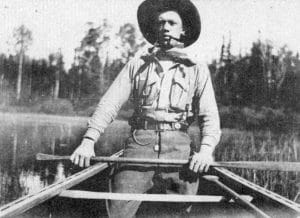 Four generations on the lake
Four generations on the lake
That same year, along with my friend Jean-Guy Brunet, I went to the ZEC Maison-de-Pierre. When I registered at the gate, I was told that Gaston was fishing on Lac Eddie where we had always had our fishing camp.
When we arrived at the lake a special scene awaited us. Gaston, age 100, was fishing in a rowboat with his daughter Francine, age 76. In another boat there was Louise, Francine’s daughter, along with a lady friend, and in a third boat, Louise’s son and his buddy.
Four generations on the lake enjoying the same activity.
A good legacy
Gaston died at the age of 103 and left us a special legacy: the concept of respect for and conservation of nature. A hunting story provides a good illustration. My father had seen a wolf eating a deer carcass. He telephoned Gaston to suggest an opportunity to obtain a rare hunting trophy.
All three of us went out to check the territory. The wolf appeared and Gaston was in position for the best shot…. not a shot was heard! The animal, having eaten its fill, left the carcass without being disturbed. We met up with Gaston and my father asked him why he hadn’t fired. “He was too beautiful; he had to live,” he responded.
That too was authentic Gaston. He lived and succeeded in life in the way Frank Sinatra described: he did it his way. He could have been a CEO or have held some other big responsibility, but instead he chose to walk in the woods, free of stress, without a schedule and with only the songs of birds to awaken him in the mornings. In short, Gaston chose freedom.
By the same author: The Forget family: tight-knit for 110 years (Click the image below)
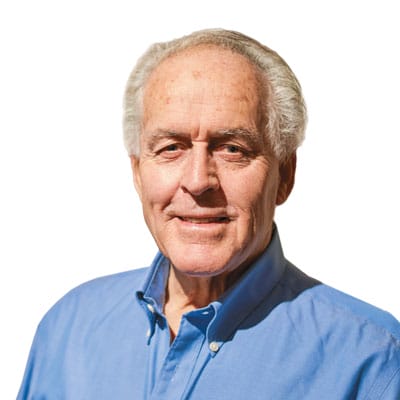
Peter Duncan121 Posts
Membre de l’équipe canadienne de ski alpin de 1960 à 1971, skieur professionnel de 1971 à 1979 et champion américain en 1965, Peter Duncan a participé aux Jeux olympiques de 1964 à Innsbruck ainsi qu’à ceux de 1968 à Grenoble. Intronisé au Temple de la renommée du ski au Canada, au Panthéon des sports du Québec et récipiendaire de la médaille du gouverneur général, Peter a longtemps été commentateur de ski à la télévision./ Peter Duncan is a Canadian former alpine skier who competed in the 1964 and the 1968 Winter Olympics. He was named to the Canadian National Alpine Team in 1960 at the age of 16 and competed at the national level for the next 10-years until 1970 before retiring.



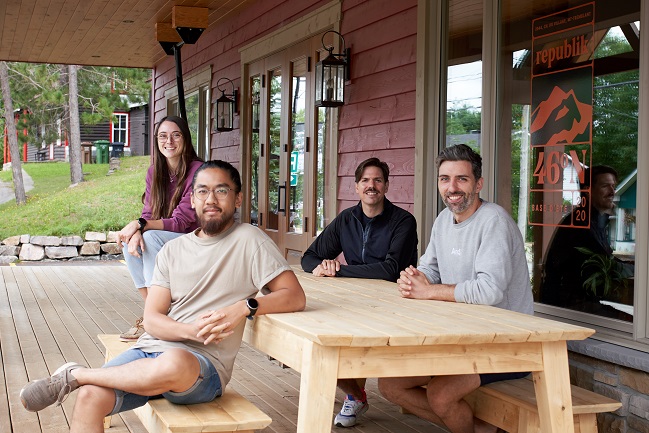
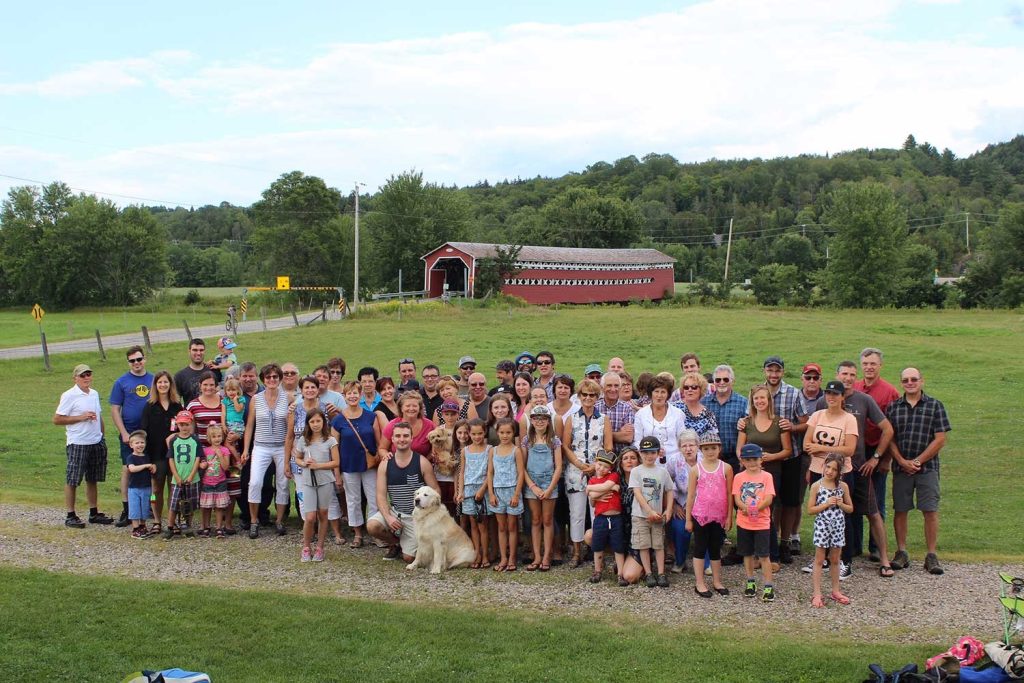
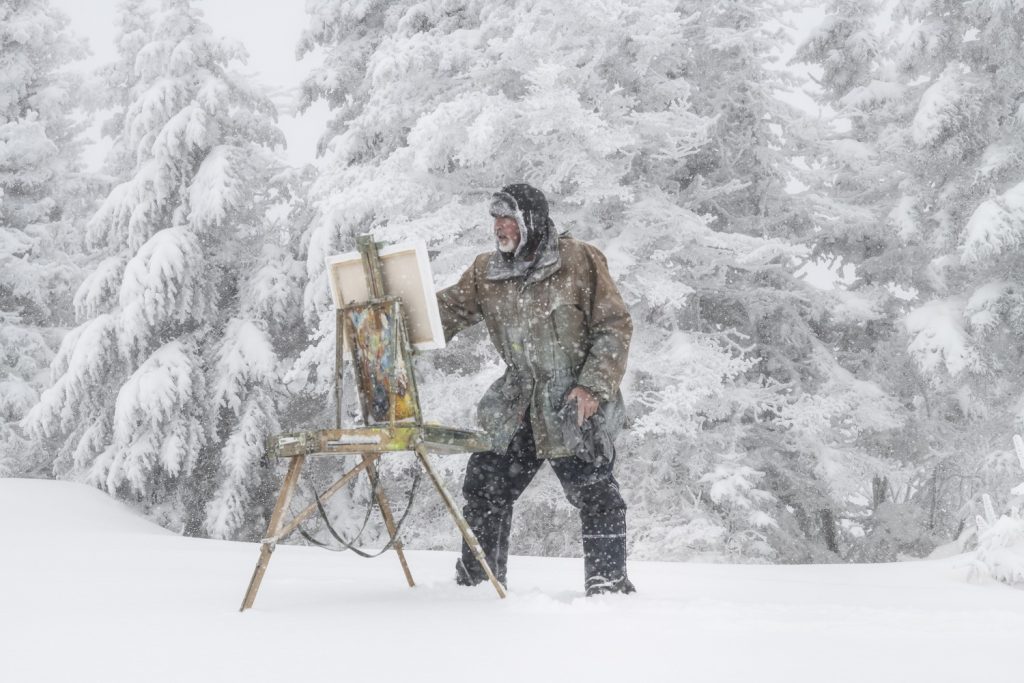
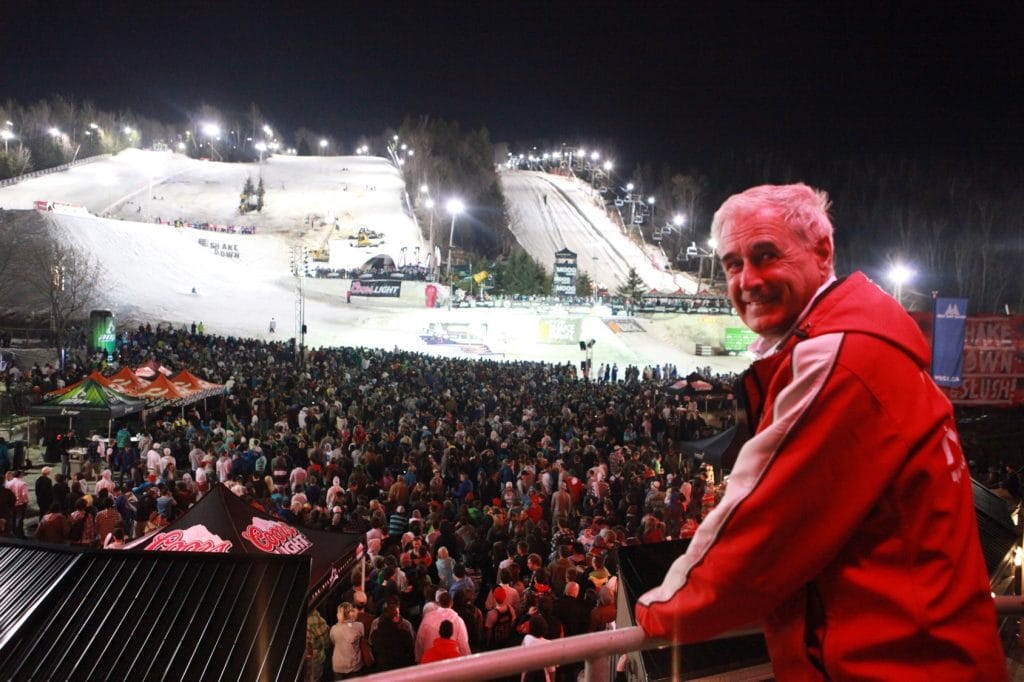
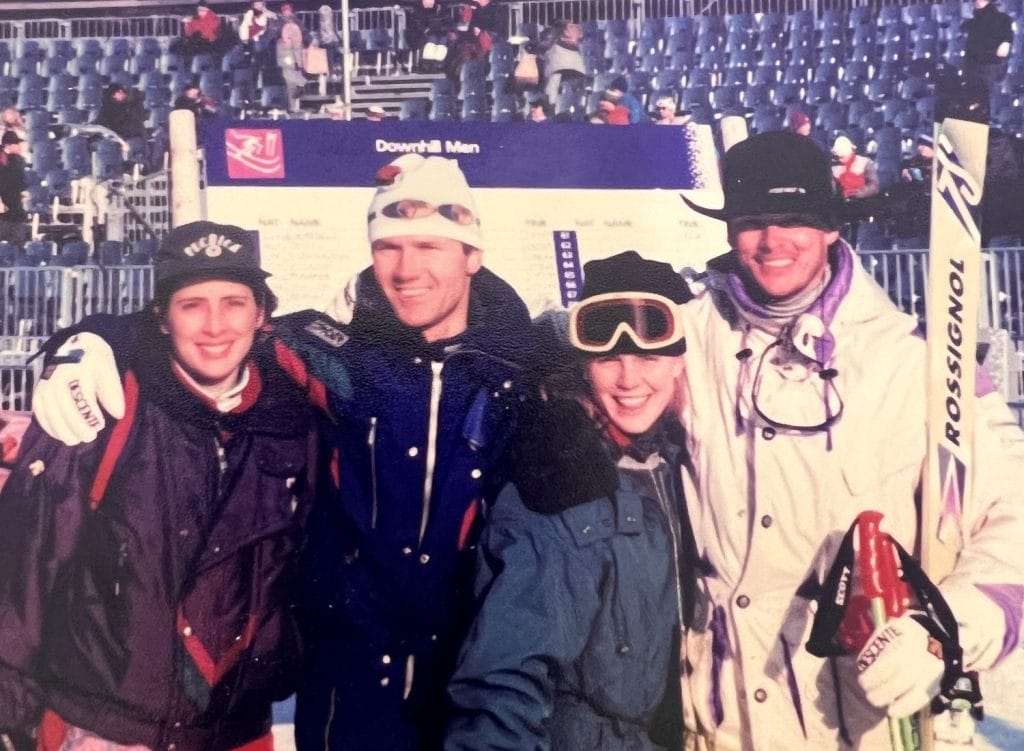
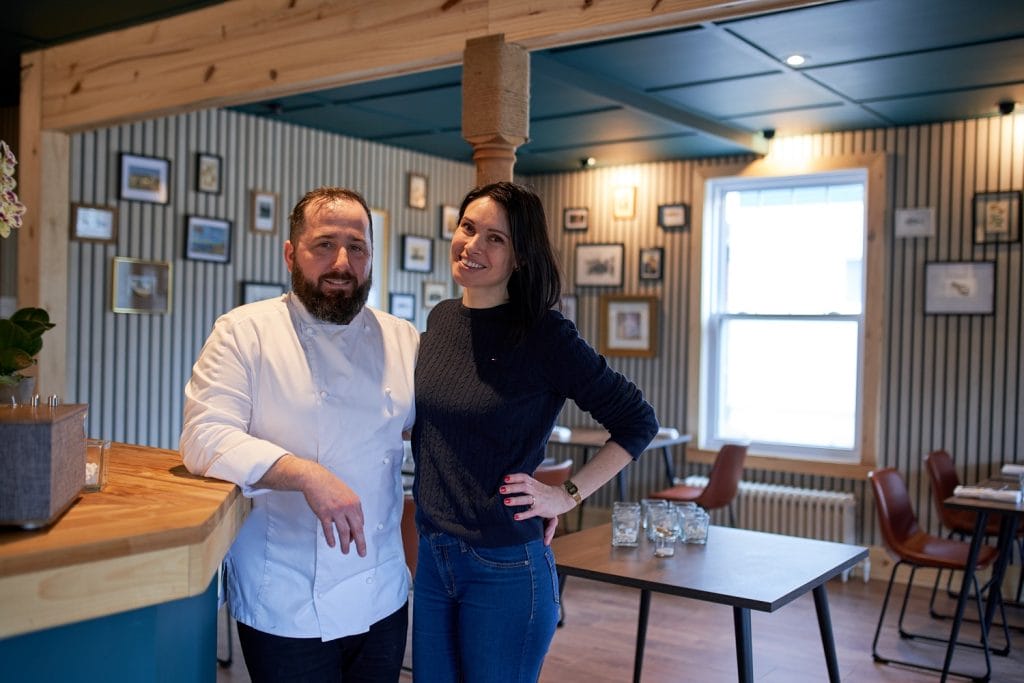

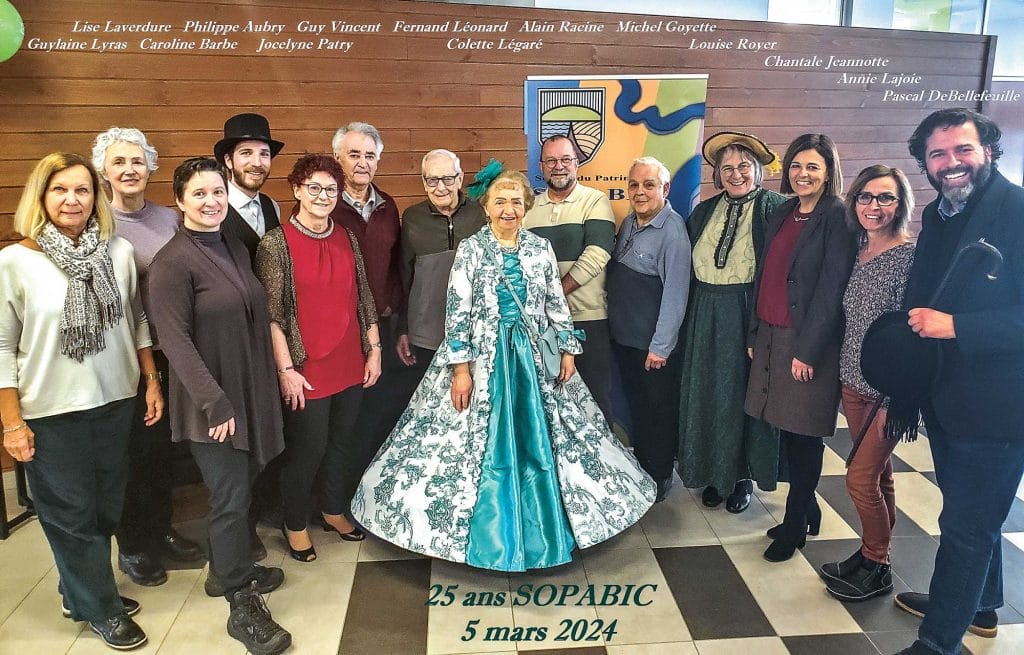
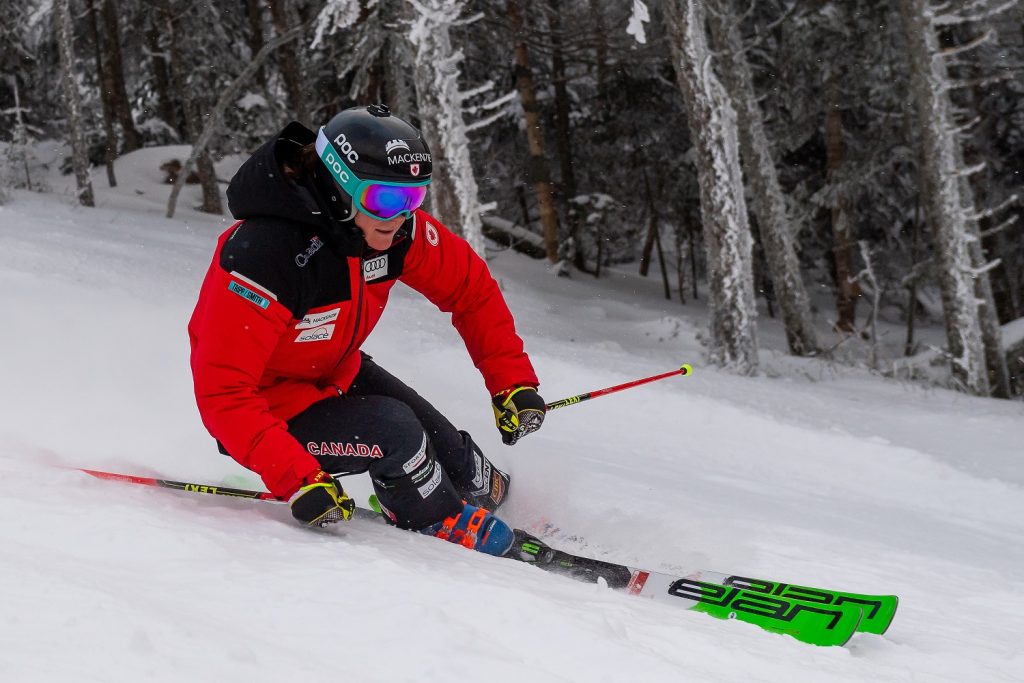
0 Comments